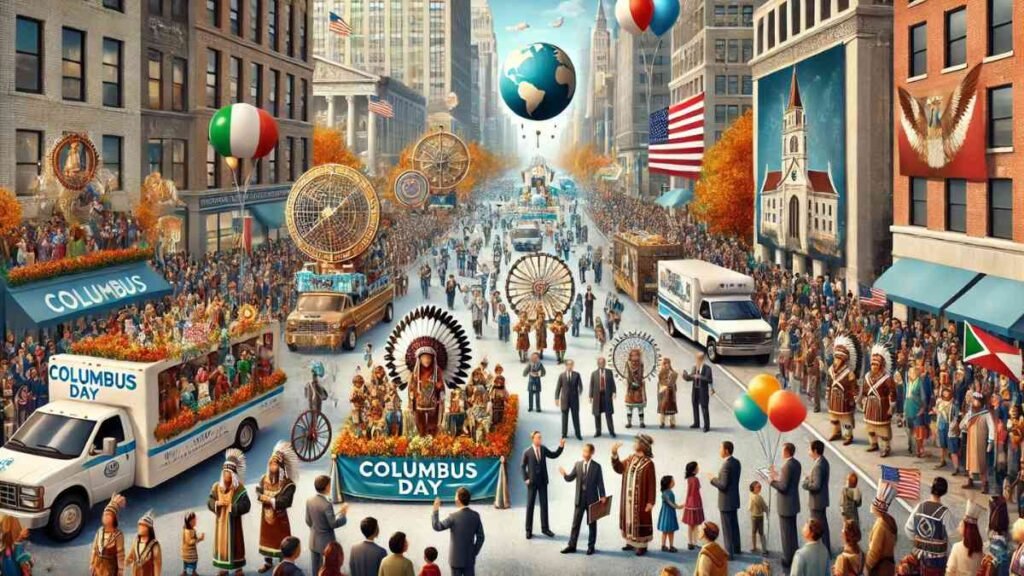Columbus Day 2024 marks the annual observance of Christopher Columbus’s arrival in the Americas on October 12, 1492. Celebrated on the second Monday of October, it has a complex history filled with cultural significance, patriotic parades, educational moments, and growing debate about its meaning and impact today. The day serves both as a historical commemoration and a moment for reflection, providing an opportunity to explore Columbus’s legacy and its contemporary implications.
Introduction
Columbus Day, recognized on the second Monday in October each year, honors the historic 1492 voyage of Christopher Columbus. Columbus Day 2024, falling on October 14th, provides a moment to examine the day’s meaning, the celebratory practices associated with it, and the controversies that challenge its role in modern times. This article explores the diverse perspectives surrounding Columbus Day 2024, offering insight into its origins, significance, and evolving public perception.
The Origins and Historical Significance of Columbus Day
Columbus Day originated to commemorate Christopher Columbus’s transatlantic journey and his landing in the Americas. The holiday first gained popularity in the 18th century and became a national observance in the United States in 1937, thanks largely to the lobbying efforts of Italian-American communities who sought to honor Columbus as a figure representing Italian heritage and American discovery.
Celebrating Columbus Day 2024
Parades and Festivities
Across the United States, Columbus Day celebrations often feature parades, speeches, and cultural displays. Major cities such as New York and San Francisco host grand parades showcasing Italian-American heritage, community leaders, and themed floats. These events aim to instill a sense of pride in cultural traditions, highlighting contributions made by immigrants.
Educational Programs and Awareness
Many schools and organizations use the day as an opportunity for educational initiatives, exploring Columbus’s expeditions and their impact on world history. Exhibitions, lectures, and classroom lessons often delve into Columbus’s journey, shedding light on his maritime achievements and their transformative effects on Europe and the Americas.
The Growing Debate and Controversies
Indigenous Peoples’ Day Movement
In recent years, a movement to replace or redefine Columbus Day with Indigenous Peoples’ Day has gained traction. Supporters of this change advocate for a holiday that recognizes the resilience, culture, and history of Indigenous peoples who were adversely affected by European colonization.
Historical Perspectives on Columbus’s Legacy
Critics of Columbus Day often point to Columbus’s controversial legacy, including the treatment of Indigenous populations during and after his expeditions. Conversations around colonialism, exploitation, and human rights abuses have led many to reconsider the appropriateness of Columbus as a celebrated figure.
State-by-State Observances
Differences in Celebration Practices
While Columbus Day remains a federal holiday in the United States, observance varies by state. Some states, such as Hawaii and South Dakota, have officially replaced Columbus Day with Indigenous Peoples’ Day, while others maintain traditional celebrations. These differing practices reflect the complexities of reconciling historical commemoration with contemporary values.
Why Some States No Longer Celebrate Columbus Day
The decision to replace Columbus Day with Indigenous Peoples’ Day or other observances is rooted in an effort to address historical injustices and acknowledge Indigenous experiences. By focusing on these perspectives, advocates aim to create a more inclusive historical narrative.
The Impact of Columbus Day 2024 on Society
Columbus Day 2024 offers a platform to engage in meaningful dialogue about identity, history, and national values. As public sentiment continues to evolve, Columbus Day has become more than a celebration of a single historical figure—it serves as a moment to reflect on cultural heritage, historical complexity, and the pursuit of a more inclusive future.
How to Engage with Columbus Day 2024
Tips for Educators and Schools
Teachers and educational institutions can use Columbus Day as an opportunity to explore diverse narratives and encourage critical thinking. By fostering conversations around historical accuracy and differing cultural perspectives, educators can help students appreciate the complexity of history.
Personal Reflection and Participation
Individuals can honor Columbus Day 2024 by learning about both the achievements and controversies associated with the holiday. Engaging with museums, reading historical accounts, and participating in community discussions offer ways to connect with the holiday’s significance.
The Role of Media and Cultural Shifts
As media coverage and public discourse on Columbus Day evolve, new perspectives and stories continue to emerge. Social media, documentaries, and journalism play a vital role in shaping how people perceive and engage with the holiday. Columbus Day 2024 is expected to spark continued debates, amplifying diverse voices and encouraging collective reflection.
Conclusion
Columbus Day 2024 serves as a reminder of the complexities of history, offering an opportunity to celebrate cultural heritage, explore diverse perspectives, and engage in meaningful conversations about identity and legacy. As the debate surrounding Columbus Day continues, it remains a significant observance that bridges the past and present.
For More Visit, Mirrormagazine.co.uk


